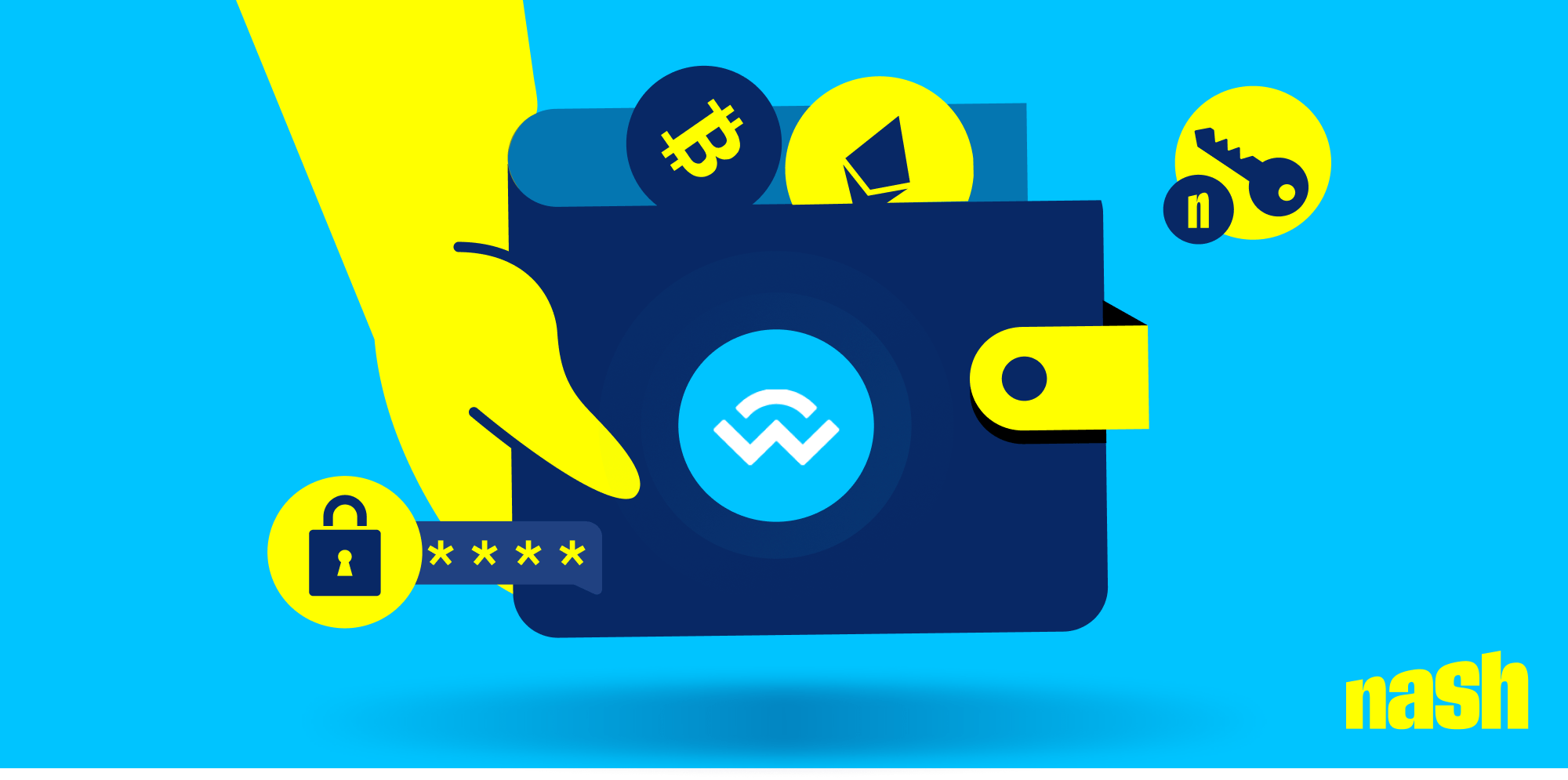Nash has applied for a MiCA licence from the Dutch Authority for Financial Markets (AFM).
The application is currently under review by the AFM.

At Nash, we strongly believe in decentralization, self-custody, individual responsibility, and empowerment. Individuals are best positioned to make investment decisions and should be free to manage their finances in a way that best suits them. Our recommendation is to always choose non-custodial Crypto wallets, also called self-custody wallets.
Not everyone agrees, and there could be scenarios where a custodial wallet might be better than a self-custody one.
Considering recent Crypto events, it is important to understand the differences between custodial and non-custodial Crypto wallets. These differences are crucial when choosing a wallet.
In general, both custodial and non-custodial Crypto wallets do the same thing: store, send, receive Crypto securely. Their differences are in how they are structured and what features and functionalities they deliver and enable.
This post will explore the differences between the wallet types to help you better understand each and make an informed decision the next time you choose.
Custodial wallets are centralized. Though never advertised as such, they can also be referred to as “centralized wallets” and are offered by third-party service providers such as cryptocurrency exchanges or platforms. Anyone with an account at a traditional banking institution or investment service already has a custodial account because that is the structure of legacy institutions.
In Crypto, with a custodial wallet, the service provider holds and manages the private keys on behalf of a user. Private keys are the keys to the crypto kingdom and cryptographic codes that grant access to digital assets. Most large Crypto platforms like Coinbase and Kraken are set up this way. Some hybrid Crypto-Fintech Platforms such as Revolut and Hi also employ this structure.
Non-custodial Crypto wallets are decentralized. Examples include Nash, MetaMask, Trust Wallet. Users have control of their private key and access to their assets. There are three types of non-custodial wallets: mobile, software, and hardware. Mobile wallets and software wallets are available for just about any device type or software: desktop app, browser app, mobile phone app. Hardware wallets are external USB-like devices that must be connected to a network before making transactions.
Our recommendation is to always follow the path of self-empowerment and ownership; that a decentralized, self-custody wallet like Nash is always the right choice. Especially since the Nash Platform includes a compliant fiat ramp. Ultimately, the choice between a custodial and non-custodial wallet is up to the user and their specific preferences.
Often, people will settle on a combination of wallet types. Using a custodial wallet for day-to-day transactions and as a fiat ramp while holding the majority of their assets in a non-custodial wallet for long-term storage and security.
To this, Nash says the added risk of using a centralized wallet is not worth it considering Platforms like Nash offer the same benefits (day-to-day trading, simplicity, ease of use, fiat ramp) decentralized.
When it comes to custodial vs. non-custodial crypto wallets, the choice depends on priorities, level of experience, and comfort. Custodial wallets offer convenience and features but come with the risk of third party trust. Non-custodial wallets prioritize security, control, and privacy but require more knowledge.
Nash’s non-custodial wallet is designed to deliver the best of both worlds, offering the same ease of use and features of a custodial wallet while providing the security and ownership of a self-custody wallet. Check out today: nash.io
Remember to conduct thorough research and consider the need to make an informed decision. Regardless of the type of wallet, always follow security best practices like enabling two-factor authentication, using updated software, and regularly backing things up.
In the constantly changing universe of cryptocurrencies, the availability of different wallet options ensures that people can find a solution that aligns with their preferences. In all cases, prioritize security and remain vigilant.
Neon Exchange Aktiengesellschaft is a partner of Modulr Finance B.V., a company registered in the Netherlands with company number 81852401, which is authorised and regulated by the Dutch Central Bank (DNB) as an Electronic Money Institution (Firm Reference Number: R182870) for the issuance of electronic money and payment services. Your account and related payment services are provided by Modulr Finance B.V. Your funds will be held in one or more segregated accounts and safeguarded in line with the Financial Supervision Act – for more information, please see this link
Your card is issued by Modulr Finance B.V. pursuant to a license by Visa Europe. Visa and the Visa brand mark are registered trademarks of Visa Europe.Neon Exchange Aktiengesellschaft also provides fiat-crypto exchange services. These are separate and unrelated to the account and payment services you receive from Modulr Finance B.V.
Neon Exchange Aktiengesellschaft is the issuer of the NEX Token.
Nash Exchange B.V. has applied for a MiCA license from the Dutch Authority for the Financial Markets (AFM). The application is currently under review.